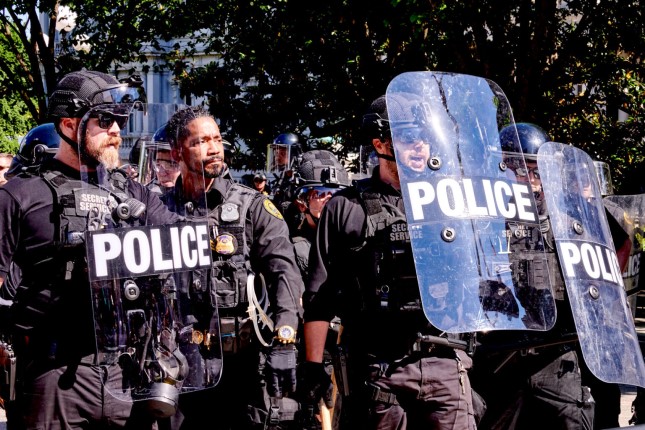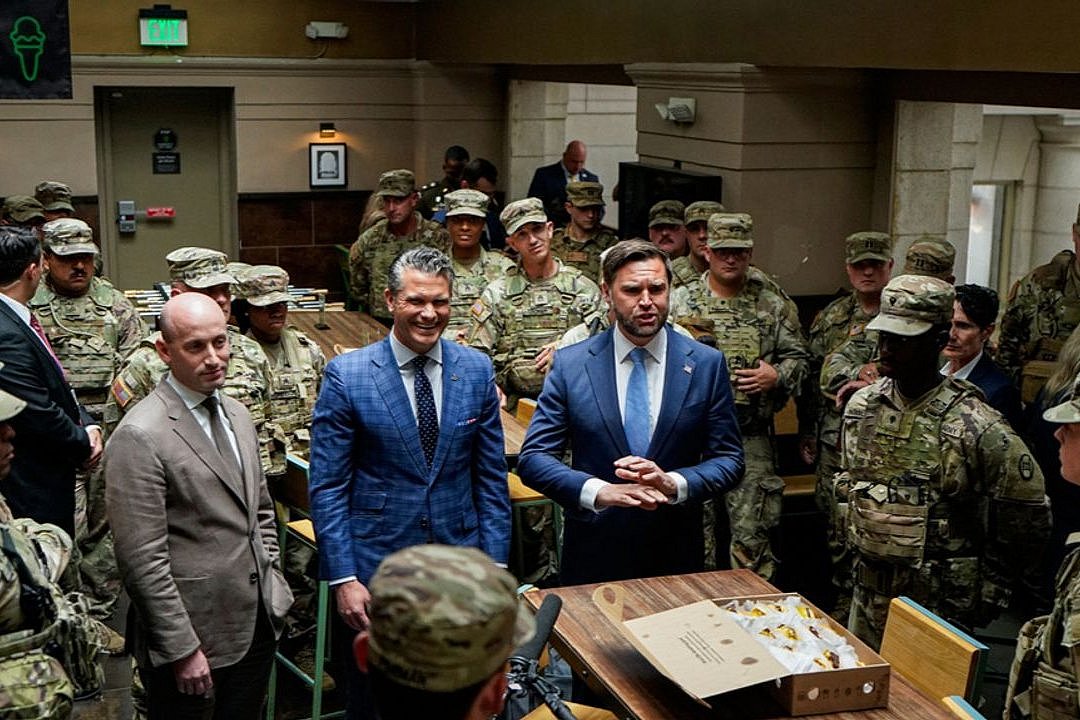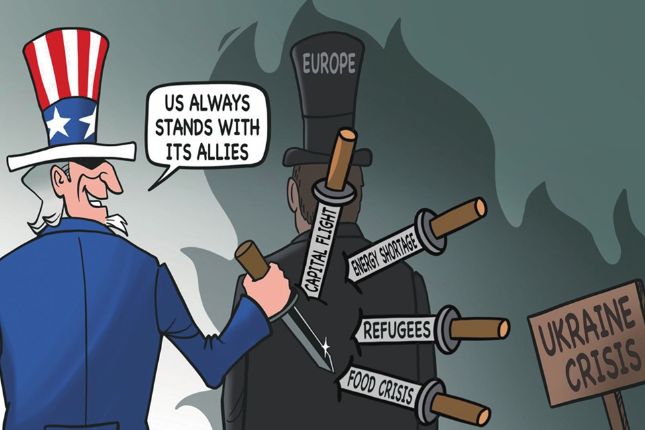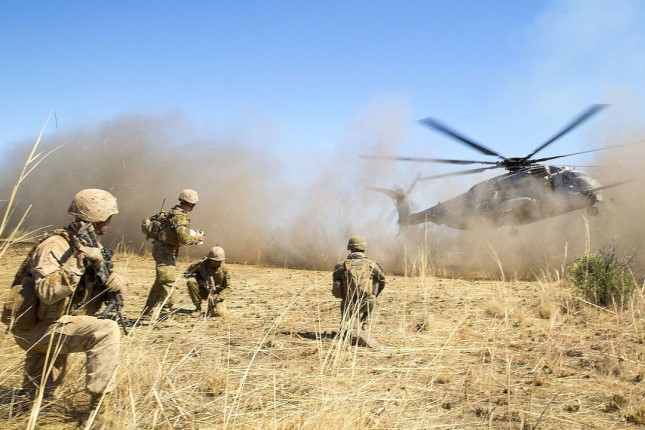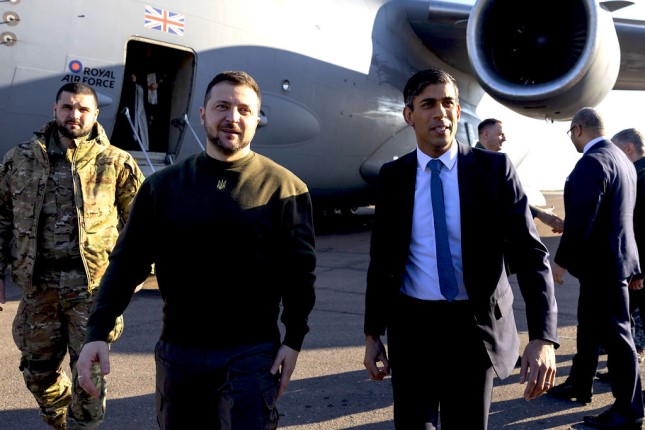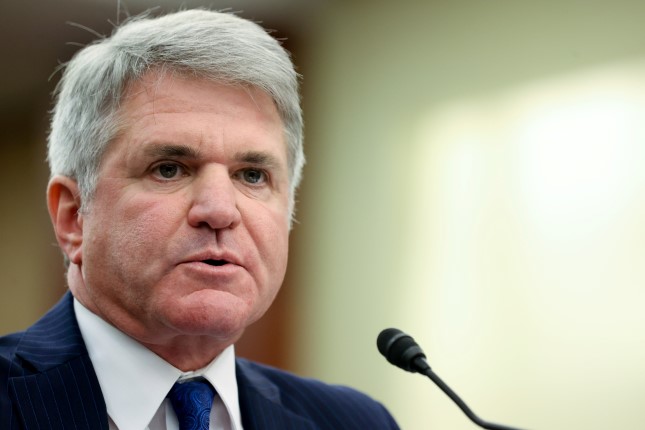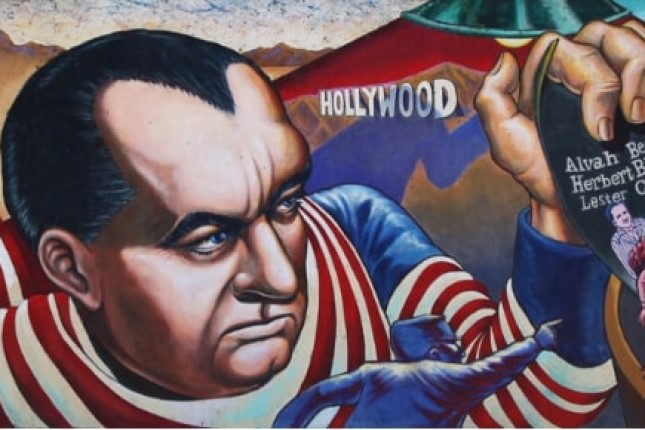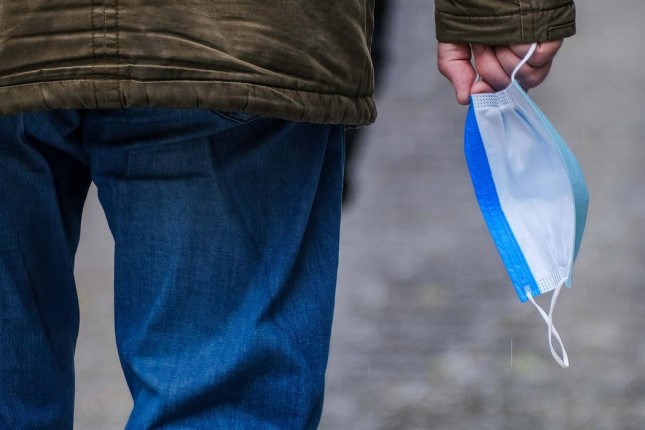Something on the way to work infuriated me recently to the point that I had to write about it. I am interested to know if I’m being too sensitive or if others have had the same experience and are as angry as I am. Warning: I use strong language in this article. Some readers might find it objectionable.
I ride a Vespa scooter to work every day from Arlington, Virginia, to my office at 17th and K Streets in Northwest Washington, D.C. The total trip is about three-and-a-half miles. Because of traffic light synchronization I always, always get the light red at the intersection of 17th and E Streets Northwest.
This is immediately next to the Old Executive Office Building, which is attached to the White House and houses the offices of the vice president and the executive office of the president. As you can imagine, there is always a significant police presence.
That police presence is usually not a problem. But on Tuesday of last week, traffic was jammed up at 7:00 am in a way that just wasn’t normal. Because I’m on a Vespa, I always (illegally) wind my way through the cars to get to the front of the line to make my left turn onto 17th Street.
I did that on Tuesday and got a front row seat to the eventual departure of Vice President Kamala Harris from the White House grounds. It wasn’t a big deal. You see the vice president and Cabinet members around town all the time. I see President Joe Biden’s motorcade at least once a week. All it does is screw up traffic. Anyway, uniformed Secret Service officers had stopped traffic going in all three directions at the intersection, waiting for Harris to pull out. The light cycled three times.
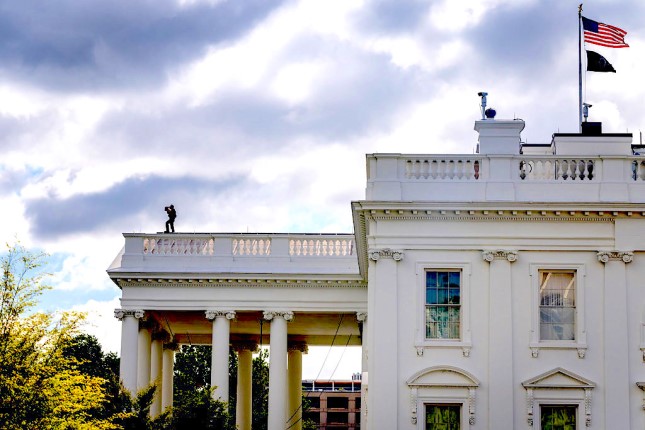
U.S. Secret Service agent on top of the White House, July 3, 2021. Photo: White House / Adam Schultz.
To my right, a driver who was waiting to continue north on 17th Street decided that he couldn’t wait any longer and began to make a U-turn to instead go south on 17th Street and, presumably, get around the jam up.
A uniformed Secret Service officer on a bicycle screamed, “You! Turn the fuck around! Get the fuck back in line!” The driver briefly protested that he had to get to work and there was nothing wrong with a U-turn when traffic coming in the opposite direction was blocked.
The response from the cop was “Shut the fuck up before I pull you out of that fucking car!” The driver dutifully got back in line.
But I couldn’t help myself. I parked my Vespa on the side of the road and walked the 50 feet or so to the cop. I said, “What’s your problem? Do you talk to your parents like that? I doubt it.” “Fuck off” was his response. I got back on my Vespa and went to work, furious.
Another Incident
The incident reminded me very much of something that happened to me half a block away, just behind the White House, two years ago. Somebody had stolen the back license plate from my car. I reported it to the police, who gave me a form to carry with me in the car until I could get new plates, “in case you get stopped, which you will.”
The cop was right. I was stopped by police in four different jurisdictions six times over the next few weeks. Every time, the cop said that his “Stinger” system had detected a stolen plate and they needed to make sure that I was the owner of the car. No problem.
I did have a problem the seventh time I was stopped, however. A young, aggressive, arrogant uniformed Secret Service officer walked up to my window and asked, “Do you know why I pulled you over?” I was a little short-tempered because the Secret Service had just pulled me over in the same spot the day before for the same reason.
So I answered, “Well, if you don’t know why you pulled me over, then how am I supposed to know why you pulled me over?”
He said, “Get out of the fucking car!”
Again, I couldn’t help myself. I said, “You better show some respect, kid. I never let my ex-wives talk to me like that, and I’m sure-as-hell not going to let some punk like you.”
He immediately called for backup and then stood there silently until his sergeant arrived on a bicycle. I said that I wanted to make a complaint. Nobody deserves to be spoken to with such disrespect. Who did this kid think he was to talk to me — or anybody else — like that?
I didn’t swear at him, I said, but I certainly could start. And to put a final point on things, I said, “It’s no wonder that so many Americans hate and fear the police.”
To his credit, the sergeant apologized to me. He said that the officer was young and inexperienced, etc. etc., but I wasn’t having it. I said that I appreciated the apology, but I couldn’t imagine that this cop was a rogue. I looked at the younger cop and asked, “Have you been trained to swear at people?”
To my surprise, he said, “Yes. We’re trained to be aggressive. That includes swearing.” I said, “Shame on you,” I took my driver’s license and stolen plate form back, and I went on my way.
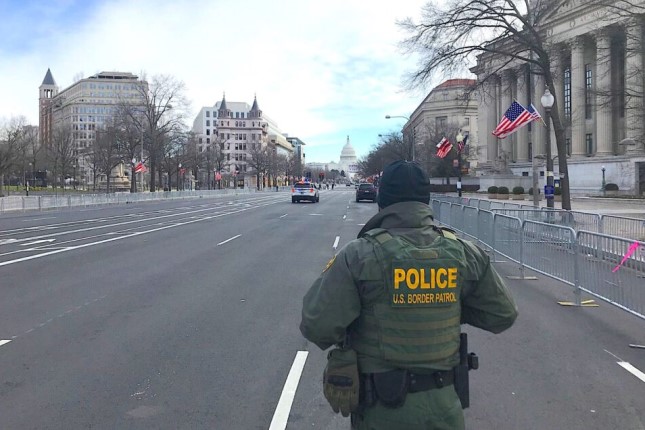
A U.S. Border Patrol agent looking down Pennsylvania Avenue towards the U.S. Capitol during Joe Biden’s presidential inauguration in Washington, D.C., Jan. 17, 2021. Photo: CBP / Flickr / Public domain.
Many of you who know me know that I’m addicted to the 1970s television series Adam-12. I love it. I DVR it every day. I’ve seen every single episode at least 50 times — no exaggeration. There’s one episode where the protagonist, Pete Malloy, is called into the lieutenant’s office for a dressing down because he was rude to a citizen while writing a ticket the day before. The lieutenant reminded him, “Our slogan is “To Serve and To Protect,” and he added that “you have to be the bigger man.” When did that change?
Tactical Language
First, are cops allowed to swear at you? You bet they are. It’s called “tactical language,” and it’s meant to establish immediate dominance in a situation. You are legally allowed to swear at the cop, too, but it’s a short walk from exercising your constitutional rights to a “disturbing the peace” charge.
The group Psychologists in Public Service recently published a study that examined the issue of “tactical language.” The study sought to extend the findings of previous research by evaluating the extent to which police use of profanity influenced not only ratings of police performance, but also the likelihood that participants would find force to be excessive.
The researchers recruited 320 undergraduate psychology students and 320 adults in the community and asked them to view a video of a mock traffic stop and to answer questions about the appropriateness of the police officer’s use of force during the video. The arrest video was filmed by troopers and staff at the Pennsylvania State Police Academy and in it, troopers either used profanity or did not while attempting to subdue the subject.
It was predicted that when the troopers used profanity, they would not only be viewed more negatively, but that participants would view the level of force used as excessive (after controlling for race, gender and previous negative experiences with police).
Results indicated that participants who rated force as excessive had significantly less trust in police performance and in police use of force. That is, they doubted whether police agencies would fairly investigate citizen use of force complaints, felt police did not always choose the appropriate amount of force during an arrest, and did not believe police treated members of the public with respect or effectively reduced crime in their neighborhoods.
When troopers used profanity, not only were their interactions with subjects rated as significantly more negative, they were also considered to contain significantly more excessive force than the arrest scenarios in which profanity was not used.
When asked about what led to their decision to rate force as excessive, participants mentioned things like “the officer cursing and yelling,” “language that was completely inappropriate,” “having a problem with the profanity,” and “police using curse words when they shouldn’t have.” When the troopers used profanity, they were described as “lacking self-control,” “loud and obnoxious,” “verbally abusive” and “frustrated too easily.”
That all seems pretty clear cut to me. As Tony Soprano once said to Richie Aprile, “Those who want respect give respect.” And until the police change their collective attitude, I’m going to stand up to them.
Main photo: Secret Service police on May, 30, 2020, during the Black Lives Matter protest following the police murder of George Floyd © Geoff Livingston / Flickr / CC BY-NC-ND 2.0.
Source: Consortium News.
